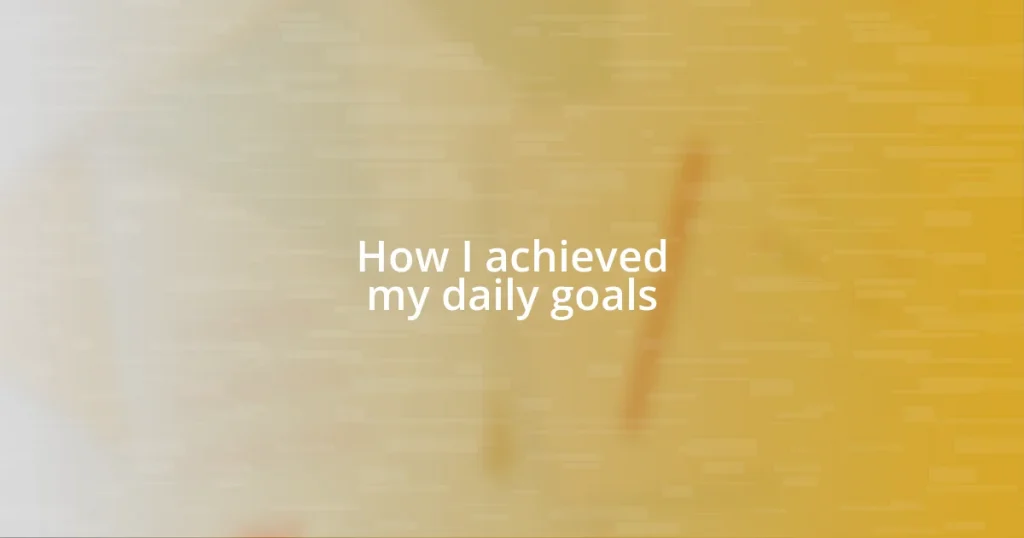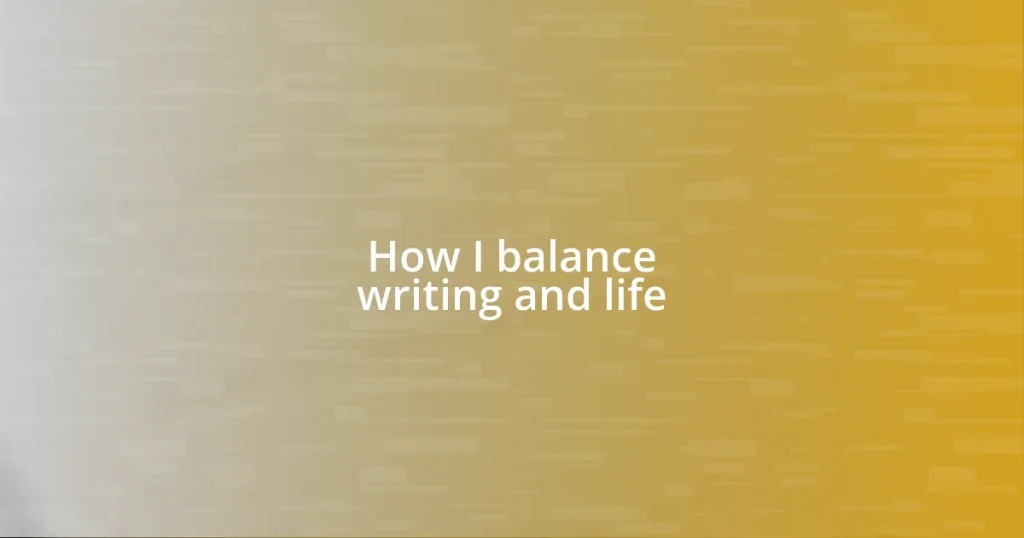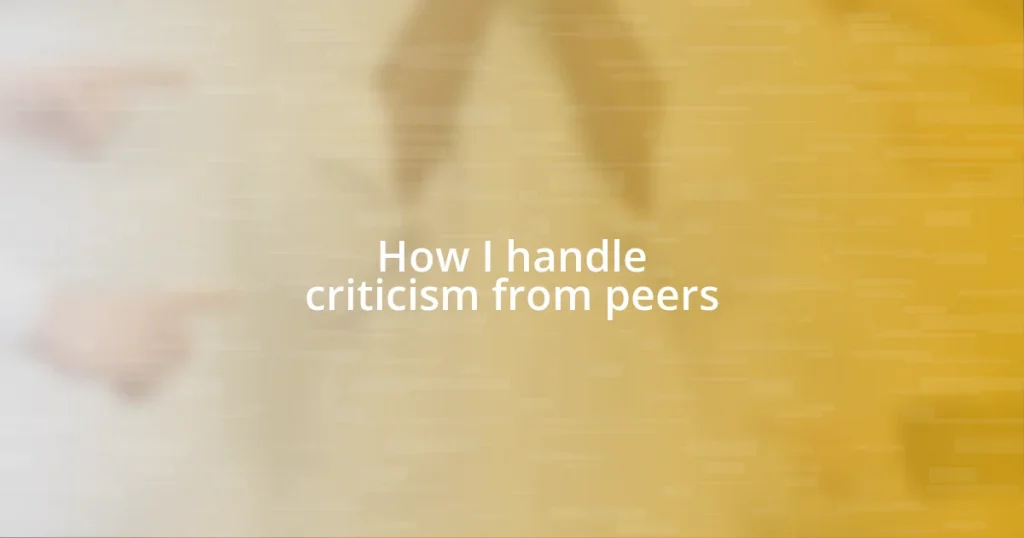Key takeaways:
- Setting daily goals serves as stepping stones for growth, helping to create clarity and celebrate small achievements.
- Implementing the SMART criteria for goal-setting and focusing on incremental progress enhances motivation and success.
- Regular reflection on achievements fosters a deeper understanding of personal growth and reinforces ongoing motivation.
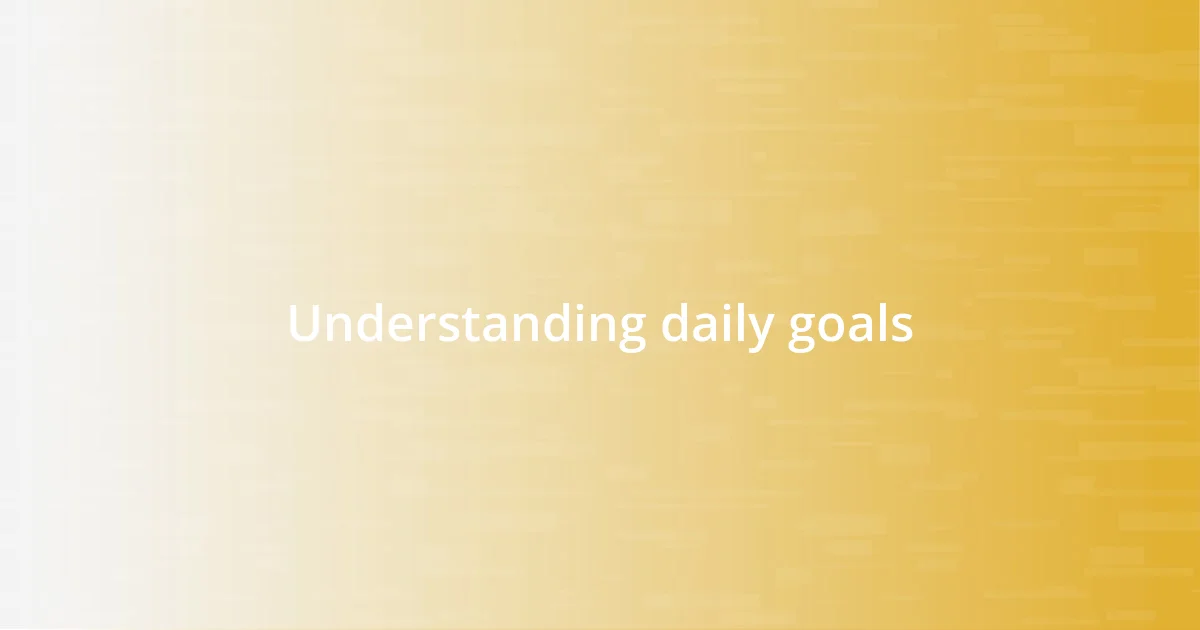
Understanding daily goals
Understanding daily goals is about recognizing their role as stepping stones in our larger journey. When I started setting daily goals, it felt liberating yet overwhelming. I often asked myself, “How can I make these small targets meaningful?” That’s when I realized that even the tiniest accomplishments could lead to a greater sense of fulfilment by adding up over time.
These goals provide clarity, helping you focus on what truly matters each day. I remember days where I’d write down my objectives and feel a wave of anxiety. But then I learned that breaking my tasks into bite-sized pieces made everything less daunting and allowed me to celebrate each small win. Creating a habit out of this practice can transform your outlook on productivity.
Lastly, it’s important to remember that daily goals aren’t just items on a to-do list—they’re opportunities for growth. Have you ever stopped to reflect on how achieving a simple goal made your day brighter? For me, even completing a morning workout or finishing a book chapter filled me with an unexpected joy and a sense of accomplishment that rippled through the rest of my day.
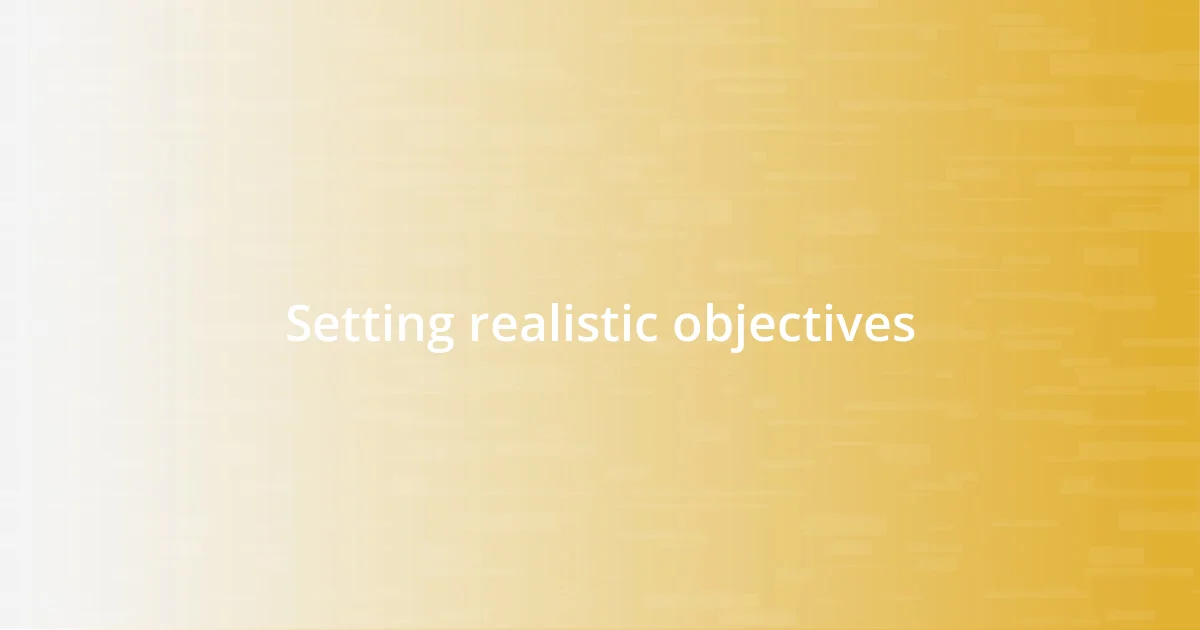
Setting realistic objectives
Setting realistic objectives is a key aspect of staying motivated. When I first started my goal-setting journey, I often bit off more than I could chew, aiming too high and feeling defeated when I didn’t meet those expectations. I found that by adopting the SMART criteria—ensuring my goals were Specific, Measurable, Achievable, Relevant, and Time-bound—I was much more likely to maintain my momentum. Instead of saying, “I want to exercise more,” which felt vague and daunting, I shifted to, “I will go for a 30-minute walk every day after work.” This slight change made a world of difference for my mindset.
Another realization I had was the power of incremental progress. I remember an instance when I aimed to finish reading a hefty novel in a week. I quickly learned it was unrealistic given my schedule. Instead, I opted to read just 10 pages a day. Surprisingly, not only did I finish the book, but I also felt a sense of accomplishment every time I closed the book on those pages. Setting smaller, digestible goals helped me cultivate a steady rhythm, instead of setting myself up for failure.
Lastly, understanding my personal limits became vital to my success in this area. I’ve learned to check in with myself regularly, comparing my energy levels and time availability with my ambitions. For instance, when I felt depleted after a long week, I carved out time for lighter tasks like journaling instead of tackling a major project. Being flexible with my objectives made my journey not only realistic but also enjoyable.
| Goal Setting Strategy | Description |
|---|---|
| SMART Goals | Specific, Measurable, Achievable, Relevant, Time-bound tasks increase success rates. |
| Incremental Progress | Breaking goals into smaller tasks fosters a sense of achievement and keeps motivation high. |
| Personal Limits | Checking in with personal energy levels helps in setting achievable objectives. |

Planning your day effectively
Planning your day effectively often starts with a clear outline of what you want to accomplish. I personally find that a simple morning ritual of mapping out my tasks can set a positive tone for the entire day. On days when I skip this step, I feel scattered, often drifting from one task to another without much purpose. Writing everything down not only provides clarity but also creates a satisfying roadmap that I can follow confidently.
Here’s a simple framework that I use to plan my days effectively:
- Prioritize Tasks: Identify the top three tasks that will make the most impact.
- Time Blocking: Allocate specific blocks of time for each task, reducing overwhelm.
- Stay Flexible: Allow room for adjustments throughout the day; life happens!
- Reflect in the Evening: Spend a few minutes reviewing what worked and what didn’t for continuous improvement.
When I adopted this method, I noticed how much more grounded I felt. For instance, last month, I had a particularly busy week filled with work deadlines and personal commitments. By taking the time to map everything out, I not only met my deadlines but even enjoyed brief moments, like sipping coffee while checking off completed tasks. This small ritual became a moment of peace amidst the chaos, giving me the focus I needed to thrive, rather than just survive.
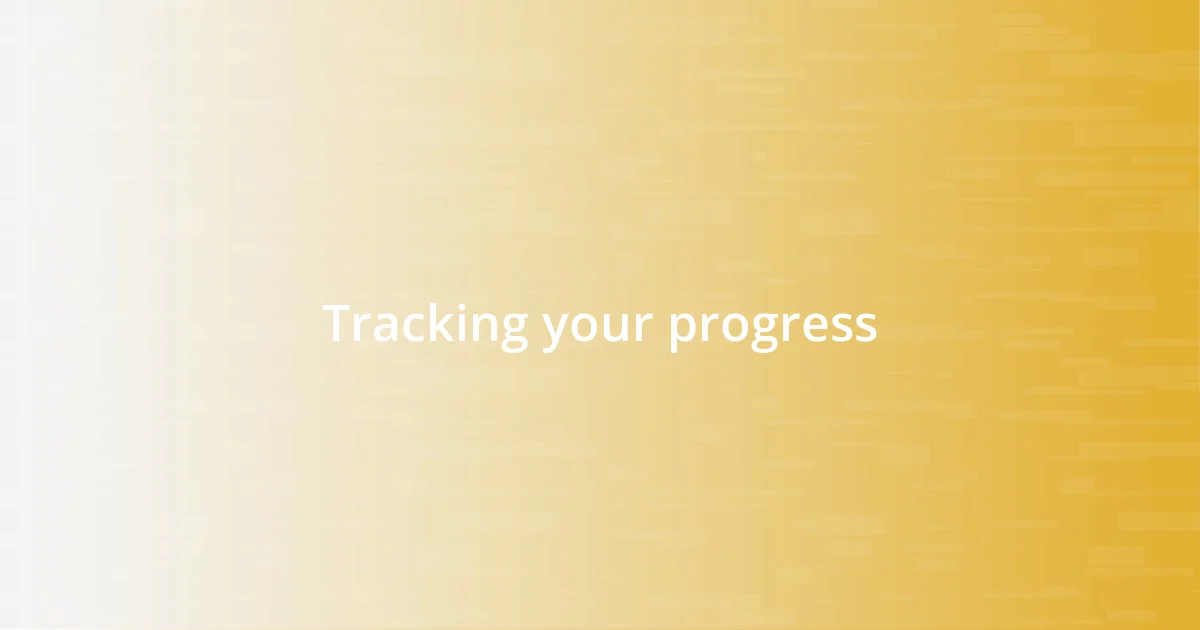
Tracking your progress
Tracking your progress can be a game changer in achieving your daily goals. I’ve found that regularly checking in on my progress helps to maintain motivation and focus. For instance, I created a simple checklist for my daily tasks, and every evening, I spend a few minutes marking off what I’ve accomplished. It’s surprising how satisfying it feels to see those checkmarks—almost like a little celebration acknowledging my hard work.
I also keep a dedicated journal where I jot down my reflections on my progress. One time, I noticed a pattern in my energy levels and productivity, which prompted me to adjust my task scheduling. By tracking not just what I did but how I felt about it, I was able to optimize my efforts. How often do you reflect on your emotional state in relation to your tasks? For me, this insight created a deeper connection between my goals and my daily actions, making the process much more rewarding.
Lastly, I enjoy using apps to visualize my progress over time. There’s something incredibly motivating about watching my streaks grow. Whenever I hit a milestone—like completing a week of my daily walks—I reward myself with a little treat, like a nice coffee or a good book. It turned goal-tracking into a positive feedback loop for me. How do you celebrate your own mini victories? Finding ways to acknowledge progress, no matter how small, has kept my spirits high and my momentum going.
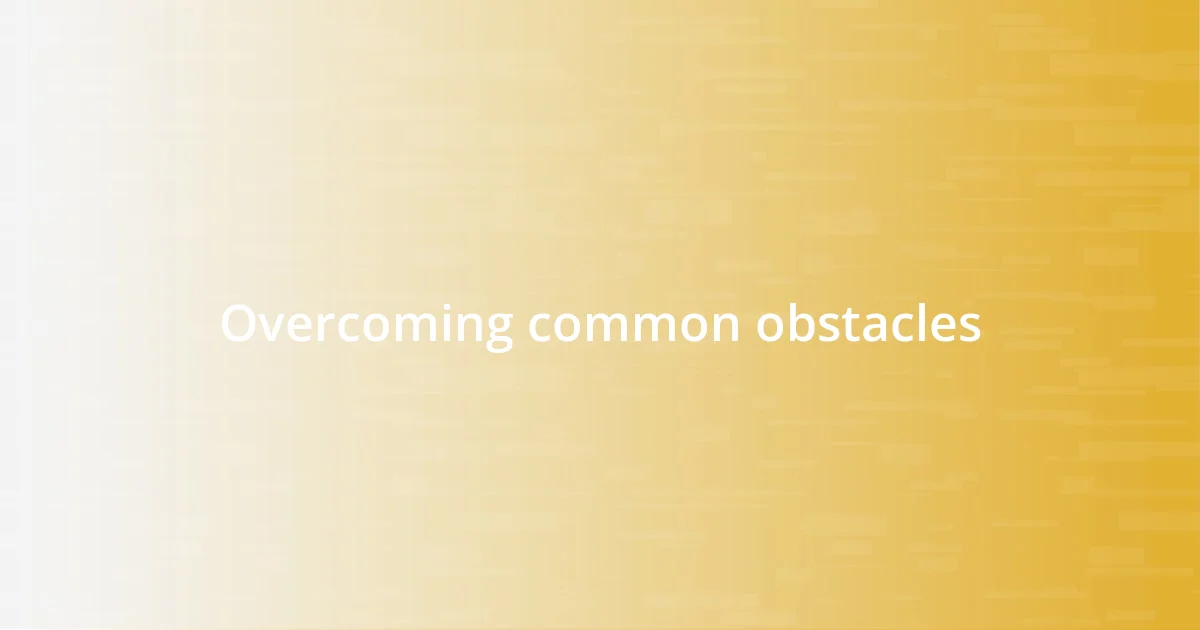
Overcoming common obstacles
Sometimes, life throws unexpected challenges our way, leading to distractions that derail even the best-laid plans. I remember a particularly hectic day when a last-minute meeting interrupted my workflow. Instead of letting frustration take over, I reminded myself to breathe and adjust my priorities. I quickly identified which tasks were truly essential and focused on those. This taught me that not all obstacles are destructive; they can also lead to a re-evaluation of goals and priorities.
Another common hurdle is the internal struggle of self-doubt. I’ve experienced days where I questioned my ability to accomplish even the simplest tasks. On those occasions, I find it helpful to tap into my support system—whether it’s friends, family, or mentors. I recall a time when I reached out to a colleague who encouraged me to reflect on past successes. This shift in perspective helped reignite my confidence and pushed me to tackle my goals head-on. How often do you lean on those around you for motivation? I’ve learned that seeking support can be a key ingredient in overcoming mental blocks.
Finally, procrastination can be a sneaky obstacle. It often creeps in when I feel overwhelmed or uncertain about where to start. I’ve implemented a technique that I call the “5-minute rule.” Whenever I start to procrastinate, I commit to working on a task for just five minutes. Surprisingly, this often turns into much longer because once I start, momentum builds. Have you ever noticed how taking that initial step can break the cycle of inertia? It’s fascinating how a simple commitment can shift my mindset and lead to tangible progress.
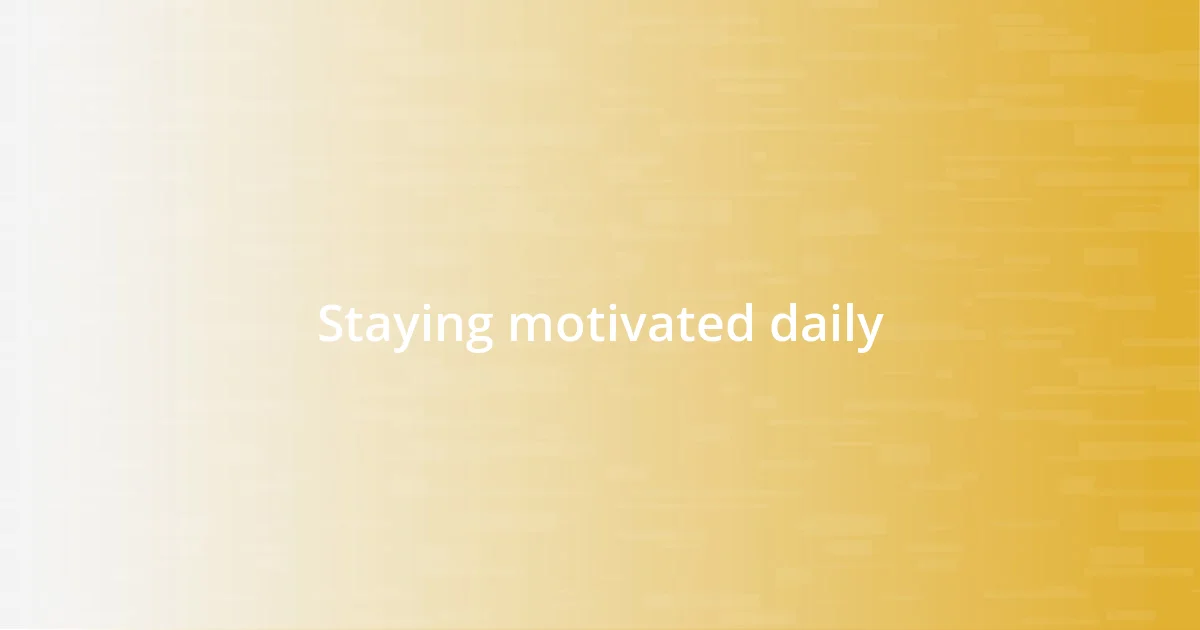
Staying motivated daily
Staying motivated daily can sometimes feel like an uphill battle. I’ve found that surrounding myself with positive influences makes a world of difference. For example, I often start my mornings by listening to uplifting podcasts or reading motivational quotes. It sets a positive tone for the day and maintains my enthusiasm. Have you ever noticed how a quick dose of inspiration can turn your day around?
A unique approach I’ve adopted is creating a vibrant vision board. I cut out pictures and words that resonate with my goals and aspirations. Placing it in a visible area serves as a constant reminder of what I’m working towards, and every glance offers that little burst of motivation I need. Recently, I added a picture of a dream destination I want to visit. It inspires me to keep pushing forward, knowing each daily goal gets me closer to that experience. What visual reminders do you use to keep your motivation alive?
Celebrating small wins can also boost daily motivation. I typically treat myself to a favorite snack or a quick break after completing tasks, and it truly uplifts my mood. Last week, I finished a small project I’d been putting off, and instead of moving straight to the next item on my list, I took an afternoon walk. That little celebration recharged my energy and creativity. Do you take time to acknowledge your successes, even the tiny ones? I firmly believe that recognizing these moments fosters an ongoing cycle of motivation.
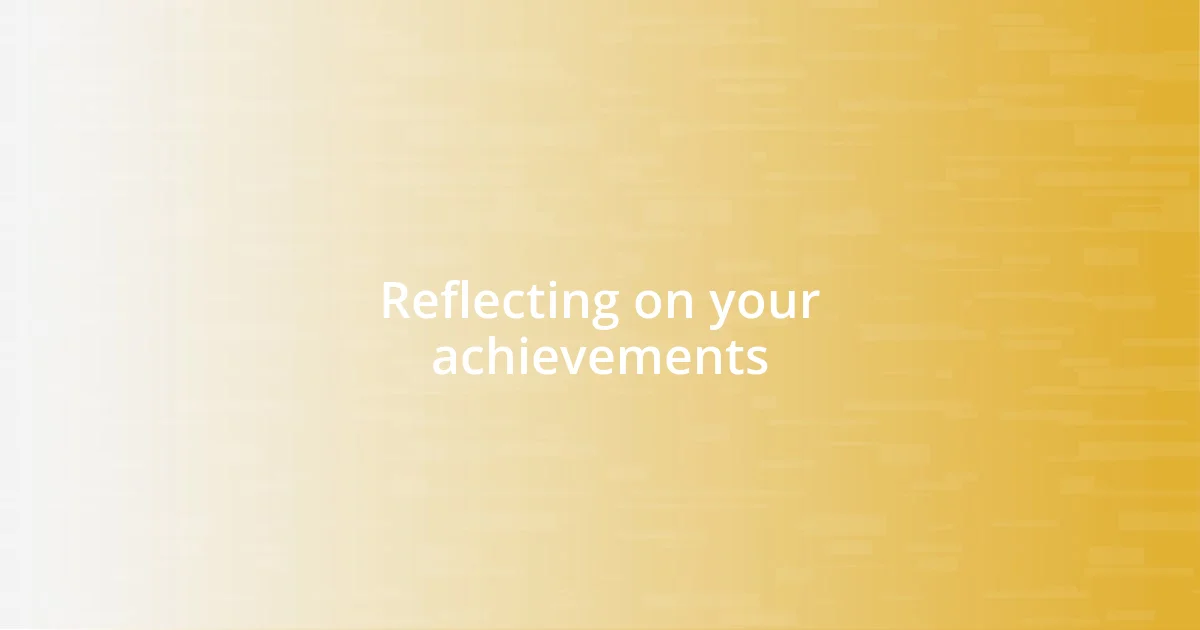
Reflecting on your achievements
Reflecting on my achievements has been a transformative practice for me. After completing a demanding project, I often take a moment to assess what went well and what I could improve. This simple reflection helps me appreciate the effort put in and recognize my growth over time. Have you ever paused to celebrate your accomplishments rather than rush into the next task?
One instance that stands out was when I finally finished a tough course that had stretched me to my limits. Afterward, I didn’t just mark it off my list and move on; instead, I sat down with a journal to jot down my feelings about the experience. I realized how much I had learned—not just academically but about my resilience. It drove home the idea that reflecting on our successes can deepen our understanding of our journey.
I encourage friends to embrace this habit as well. Sometimes, they roll their eyes at the thought of taking time for reflection, thinking it’s unnecessary. But I assure them that reflecting can provide clarity in moments of uncertainty. I still remember someone sharing with me a moment of gratitude after realizing how far they had come in their personal goals. It sparked something within me, reminding me how important it is to cherish those milestones, no matter how small. Isn’t it amazing how reflection can build a roadmap for future success?










